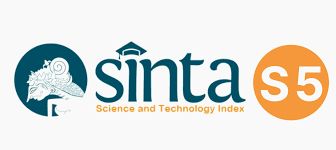The Application of Sentiment Analysis on Customers Responses in Social Media (Case Study: Indihome and First Media Internet Service Provider)
DOI:
https://doi.org/10.25170/metris.v23i02.4150Keywords:
Big Data, Data Science, Sentiment Analysis, Naive Bayes Classifier, TwitterAbstract
The development of technology in industry 4.0 era leads to a digitalization process which is marked by the emergence of the internet as one of the important enablers. Indihome and Firstmedia are the most popular Internet Service Providers) ISPs in Indonesia in providing internet services. These two companies certainly have competition in winning the hearts of customers. One of the important factors in this business competition is customer response in the form of reviews which are usually done through social media tools such as Twitter. For this reason, it is important to study how the customer responds in the form of a given sentiment. Sentiment analysis can be a way to study customer responses to products and services. Sentiment Analysis is a method that is part of Big Data in Data Science which is useful for assessing sentiment in the form of positive or negative sentiments. The data collected was 1000 tweets for each ISP which will be processed with the help of Rstudio. The processing results obtained 177 positive tweets, 489 neutral, and 334 negative tweets for indihome while firstmedia obtained 620 positive tweets, 222 neutral tweets, and 158 negative tweets. The result is firstmedia ISPs get a better positive response and the number of complaints is less than indihome. Internet service providers (ISPs) can improve product and service quality by creating a single database system and also implementing the service design blueprint.












